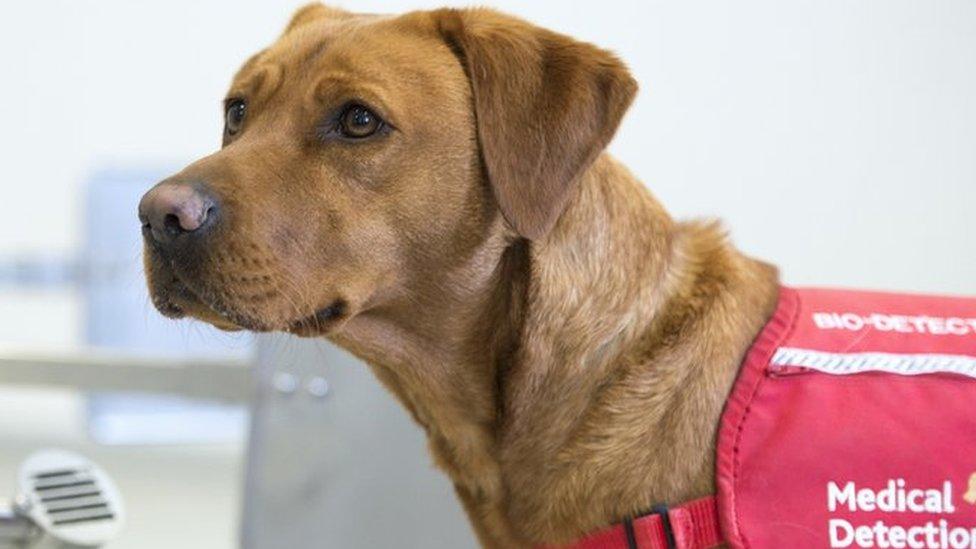Medical assistance dogs 'not only life-changing but life-saving'
- Published
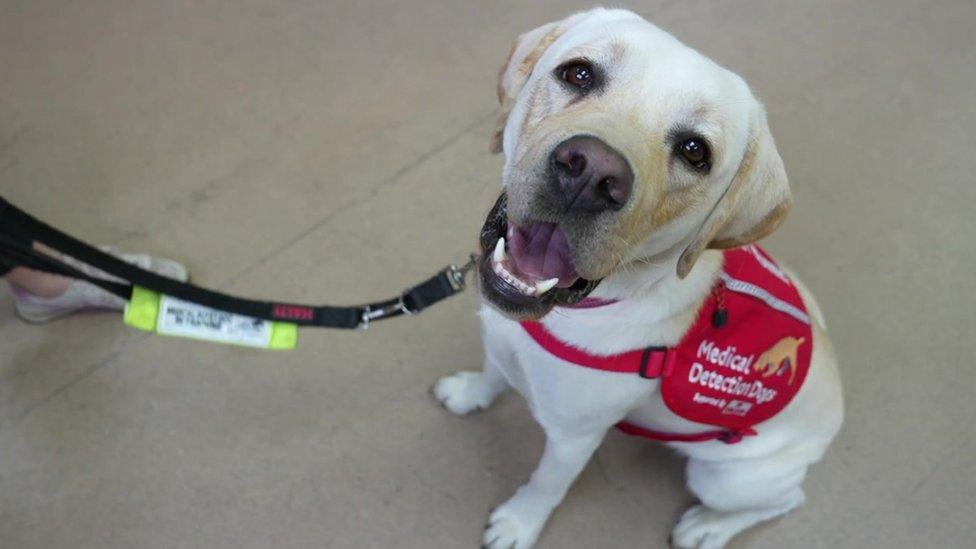
Medical assistance dogs use their senses of smell to detect medical emergencies in their owners
A charity which provides medical assistance dogs says it is looking for more people to come forward who might need the "life-changing" animals or who could help train them when they are puppies. How do the dogs help those that need them, and what does it mean to take one on before it meets its new owner?

'He really has saved my life'
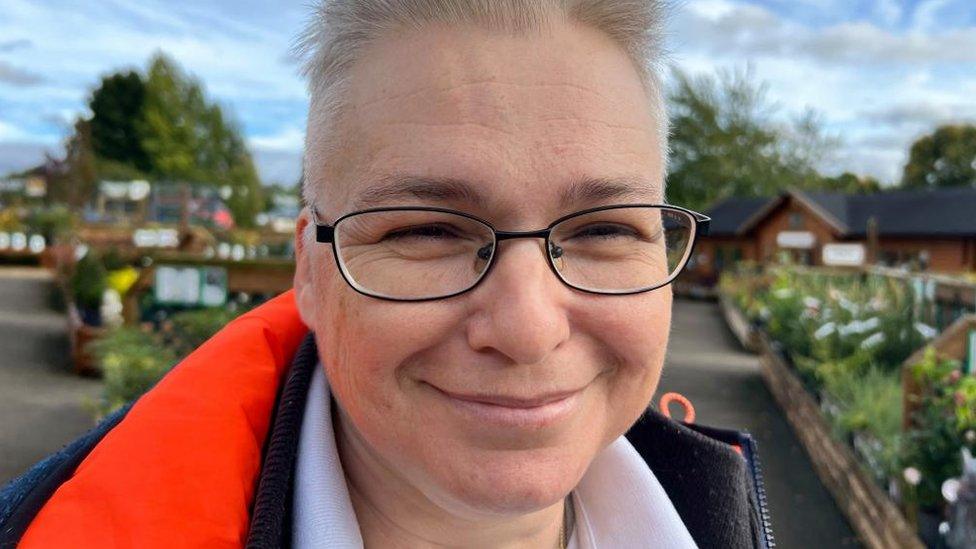
Claire Moon, who is diabetic, says her dog regularly spots when her blood sugar level is low
Claire Moon, from Arlesey, Bedfordshire, says her assistance dog, Magic, has saved her life on countless occasions.
She has type 1 diabetes, and has been teamed with the 10-year-old dog since the golden retriever-Labrador cross was just 18 months old.
Magic is able to use his sense of smell to detect chemical changes when Mrs Moon is about to have a diabetic "episode" which could lead to her having a seizure or falling unconscious.
The 49-year-old, who works as a nurse for a private ambulance company, said: "What it means is I don't have to worry if I go to sleep [thinking] 'am I going to wake up in the morning?'
"I don't need my mum or my husband to ring me up every day to check I'm still alive.
"I know he's always there and keeping an eye on me and letting me know what's happening."
She says Magic is "not only life-changing but life-saving".
"He really has saved my life not only once or twice, but hundreds of times," she adds.

'The joy of having a pup'
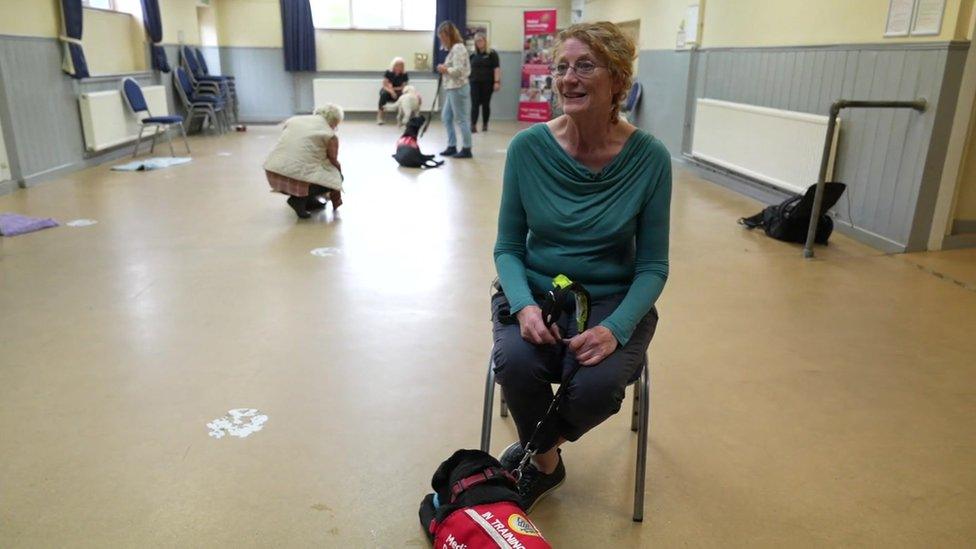
Seven-month-old Kenny will stay with Maddy Deason until he is trained to give someone medical assistance
Maddy Deason lives in Thorpe le Soken, Essex, and is a volunteer for the Milton Keynes-based charity Medical Detection Dogs.
For the last four years she has looked after dogs from about eight weeks old until they are trained and ready for the person who has a medical need.
She is currently with Kenny, her third dog, and says it is "incredibly rewarding".
"It's a bit of a double-edged sword because you have to give them back but I just counteract that with knowing he's going to somebody to give them the life most of us can have but unfortunately some people can't," she says.
Ms Deason says looking after a puppy is "pretty much ongoing all the time, we take them out and every day we're doing something whether it's training or coming to puppy school".
"It's just the joy of having a pup and it encourages you do things and socialise and meet other volunteers. It's not all work - a lot of it is fun," she adds.

'These dogs are life-changing'
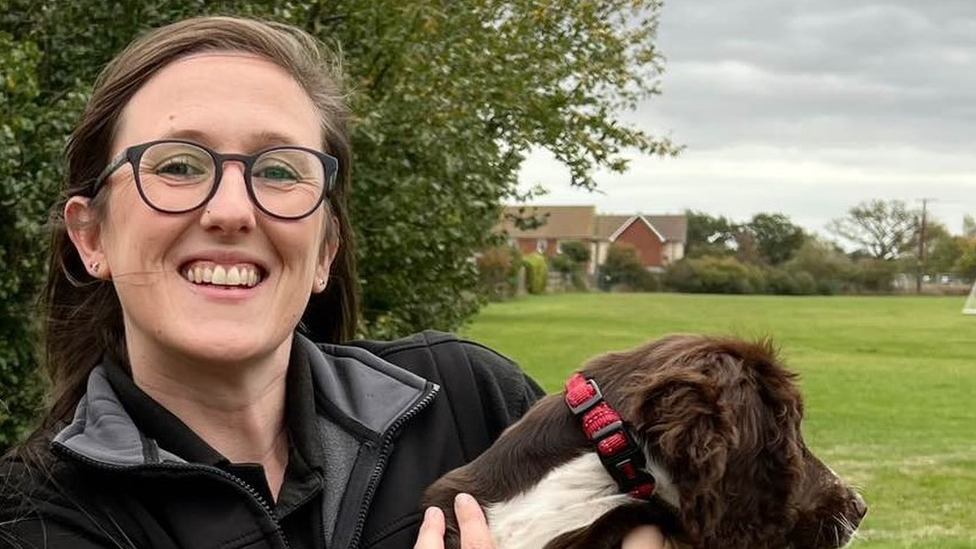
Assistance dogs can change people's lives, says Sarah Backhouse-Wood
Sarah Backhouse-Wood, volunteer and fundraising coordinator for the East of England at the charity Medical Detection Dogs, says the animals can "work in a number of roles".
"Assistance dogs work with people that have illnesses that need alerting to an impending emergency and can go and get medication depending on the illness.
"They use the scent and their incredible sense of smell to alert them to an emergency," she says.
Although the dogs are becoming "more common", she says, the charity wants to hear from people who might need a dog or can look after a puppy.
"We're finding it really tricky at the moment and we know that some people don't even know we exist in this part of the country," she says.
Ms Backhouse-Wood says volunteers taking on a puppy need to be "at home most of the day and have a lot of free time to cope with an energetic dog that needs a lot of exercise".
She says: "It can be hard work but the hard work you put in you get back very quickly from them.
"These dogs are life-changing, before [owners] had an assistance dog they couldn't leave the house without assistance."

Find BBC News: East of England on Facebook, external, Instagram, external and Twitter, external. If you have a story suggestion email eastofenglandnews@bbc.co.uk, external
Related topics
- Published30 July 2022
